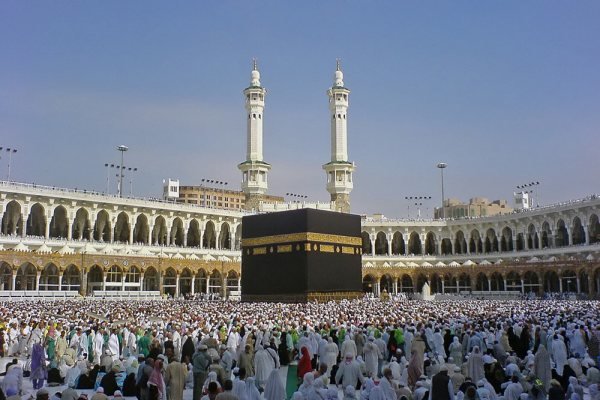Iran to resume Hajj pilgrimage late July after 2016 boycott

TEHRAN – Iran has announced it will resume sending hajj pilgrims to Saudi Arabia in July after boycotting the 2016 ritual in objection to Riyadh failing to soothe safety concerns.
“Flights will start on July 23 and will continue until August 26,” Tasnim news agency quoted Hamid Mohammadi, the head of Iran’s Hajj and Pilgrimage Organization, as saying on Friday.
“Nineteen Iranian airports will be engaged during the Hajj period,” Mohammadi said.
Last year, Iran did not dispatch any of its citizens to the Hajj, first such decision in nearly three decades, after 464 of its nationals lost their lives in a crush in Mina in September 2015.
In March, Saudi Arabia announced that Iranian pilgrims would participate in this year's annual Hajj, ending lengthy negotiations between the two countries over the issue.
Iran was the last Muslim country that signed the Hajj contract with Riyadh, making it difficult for the country to book “standard” hotel rooms, Mohammadi added.
More than 64,000 Iranians performed Hajj in 2015 as compared to 86,000 pilgrims standing in queue this year, up 35 percent.
More than 1,350,000 Iranians have filled out forms to make pilgrimage to Islam’s holiest sites in Mecca and Medina over the next few years, the Iranian officials explained.
Iranian pilgrims will be carrying smart handcuffs in addition to IDs for easier tracking in emergency situations, the official further said.
Mohammadi said, “More than half of our pilgrims are in their fifties who are likely to forget their IDs and get lost in the crowd.
“So, our experts concluded that we use handcuffs and IDs both, what other countries also do.”
Additionally, more medical service centers will be made available, he said, adding pilgrims have been given training on how to react in emergency.
It took Tehran and Riyadh more than two years to bury the hatchet over the sticking point after the Mina crush.
The incident infuriated Tehran. Soon after, ties between the two regional rivals worsened further when Saudi Arabia executed a pro-democracy Shiite cleric.
Iran boycotted the hajj for three years between 1988 and 1990 after Saudi police killed around 400 Iranian pilgrims.
"The ministry of hajj and the Iranian organization have completed all the necessary measures to ensure Iranian pilgrims perform hajj 1438 according to the procedures followed by all Muslim countries," the official Saudi Press Agency reported in March.
AK/PA
